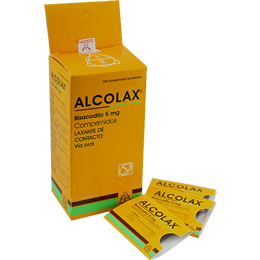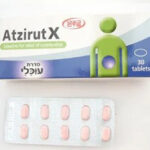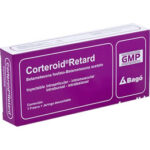Alcolax: Uses, Dosage, Side Effects, Interaction, Warnings

Alcolax is a brand of bisacodyl, a medication used on a short-term basis to treat constipation. It also is used to empty the bowels before surgery and certain medical procedures. Bisacodyl is in a class of medications called stimulant laxatives. It works by increasing activity of the intestines.
Alcolax stimulates the muscles in the wall of the small intestine and colon to generate a bowel movement. It also alters water and electrolyte levels in intestines, increasing the level of fluids which also produce a laxative-like effect.
How should Alcolax be used?
Alcolax comes as a tablet to take by mouth. It is usually taken the evening before a bowel movement is desired. Alcolax normally causes a bowel movement within 6 to 12 hours. Do not take bisacodyl more than once a day or for more than 1 week without talking to your doctor. Follow the directions on the package or on your prescription label carefully, and ask your doctor or pharmacist to explain any part you do not understand.
Take Alcolax exactly as directed. Frequent or continued use of Alcolax may make you dependent on laxatives and cause your bowels to lose their normal activity. If you do not have a regular bowel movement after taking Alcolax, do not take any more medication and talk to your doctor. Swallow the tablets whole with a glass of water; do not split, chew, or crush them. Do not take Alcolax within 1 hour after drinking or eating dairy products.
What special precautions should I follow?
Before taking Alcolax,
• tell your doctor and pharmacist if you are allergic to bisacodyl, any other medications, or any of the ingredients in these products. Check the label or ask your pharmacist for a list of the ingredients.
• tell your doctor and pharmacist what prescription and nonprescription medications, vitamins, nutritional supplements, and herbal products you are taking or plan to take. Your doctor may need to change the doses of your medications or monitor you carefully for side effects.
• if you are taking antacids, wait at least 1 hour before taking Alcolax.
• tell your doctor if you have stomach pain, nausea, vomiting, or a sudden change in bowel movements lasting more than 2 weeks.
• tell your doctor if you are pregnant, plan to become pregnant, or are breast-feeding. If you become pregnant while taking Alcolax, call your doctor.
What special dietary instructions should I follow?
A regular diet and exercise program is important for regular bowel function. Eat a high-fiber diet and drink plenty of liquids (eight glasses) each day as recommended by your doctor.
What should I do if I forget a dose?
This medication usually is taken as needed. If your doctor has told you to take Alcolax regularly, take the missed dose as soon as you remember it. However, if it is almost time for the next dose, skip the missed dose and continue your regular dosing schedule. Do not take a double dose to make up for a missed one.
In case of emergency/overdose
In case of overdose, call the poison control helpline at 1-800-222-1222. Information is also available online at https://www.poisonhelp.org/help. If the victim has collapsed, had a seizure, has trouble breathing, or can’t be awakened, immediately call emergency services at 911.
What side effects can this medication cause?
Alcolax may cause side effects. Tell your doctor if any of these symptoms are severe or do not go away:
• stomach cramps
• faintness
• stomach discomfort
Some side effects can be serious. If you experience this symptom, stop taking Alcolax and call your doctor immediately:
• rectal bleeding
Alcolax may cause other side effects. Call your doctor if you have any unusual problems while taking this medication.
What other information should I know?
Ask your pharmacist any questions you have about Alcolax. It is important for you to keep a written list of all of the prescription and nonprescription (over-the-counter) medicines you are taking, as well as any products such as vitamins, minerals, or other dietary supplements. You should bring this list with you each time you visit a doctor or if you are admitted to a hospital. It is also important information to carry with you in case of emergencies.





